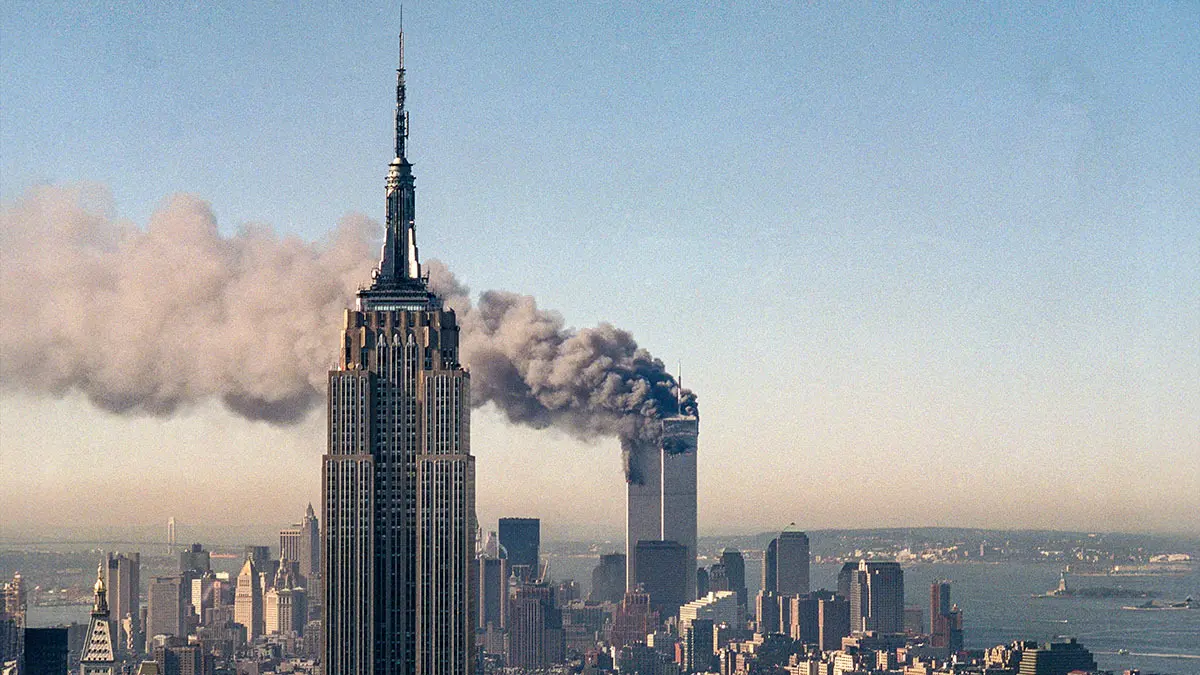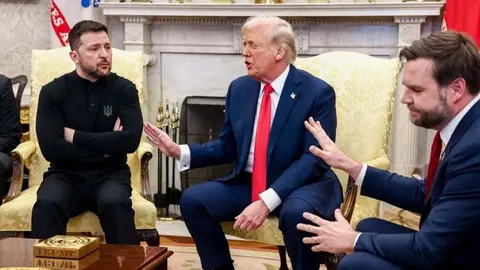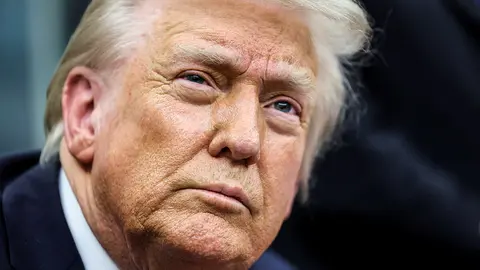The beginning of the story

It was convinced that its military supremacy would allow it to act unilaterally and, at the same time, confident that its hegemonic role in the global order would enable it to obtain the regional and multilateral support necessary to achieve its objectives.
In 2003, Iraq became one of the focal points of its anti-terrorist strategy. But the decision to intervene was made without the unanimous support of partners and allies and the fracture in public opinion was exploited by certain rivals and enemies to weaken US leadership.
Putin then took a step towards forging a critical position together with the Franco-German axis (Chirac - Schröder) in Europe, while the left took to the streets under the ultra-progressive message of ‘no to war’, which Ione Belarra has now transferred to her ‘post-wokist’ T-shirt to oppose the security of European democracies against the anti-liberal Russian autocracy.
Aznar's government opted for a compromise with the majority of its Euro-Atlantic allies and with the United States, while Zapatero decided to echo the discordant cries and weaken Spain's credibility by withdrawing precipitously from the multilateral coalition built by the Americans to act against terrorism in Iraq. To later join the insubstantial project of the ‘Alliance of Civilisations’, launched by progressivism to try to clean up the West's image in a Middle East set on fire by terrorist groups, the failed Arab springs and Islamist theocrats.
With the image of democracy mortally wounded and its main supporter, the Euro-Atlantic axis, weakened by the economic crisis, the autocracies are rebuilding their alliances and interests in the second decade of the millennium and are taking the next step in their objective of weakening the liberal order: fracturing democratic values and institutions and gaining weight in the markets. Taking advantage of new digital channels and disinformation for the former, and of globalisation and the energy transition that has produced a new geopolitical and geoeconomic environment for the latter.
The strengthening of autocracies and the deterioration of democracies are noted by strategists of both systems and the new order of competition between powers is proposed from Washington based on the 2017 National Security Strategy as a remedy to strengthen alliances between countries and powers with common values, which would serve as a pole of attraction for non-democratic third countries but which did not question their political idiosyncrasies. The final fallout from that postmodern ‘Belle Epoque’ and that end of history that Francis Fukujama had so insubstantially predicted, simultaneously transferred ideological radicalism to democracies and geopolitical realism to autocracies.
And the results of this carcinogenic global political process have manifested themselves in the persecution of the opposition and the assassination of Navalny in Russia; the fraudulent victories of Maduro in Venezuela; the legitimate but inexplicable victories of Trump in the United States; the rise of the far right in Europe; the support of anti-system and secessionist parties for the Government in a massively pro-European and pro-Atlanticist Spain; the reactivation of terrorist groups and repression in the Middle East; and the consolidation of autocrats at a global level. And finally, in the war in Ukraine following an illegal invasion.
Although complexity is easier to explain if simple reasoning is used, the question is not to understand how we have reached this situation. Far from being surprised that international politics has reached such a level of complexity. The issue is to become aware of the disastrous evolution that European politics has undergone in order to correct the errors that have led us to be less free, more defenceless against the outside world and to feel less well represented by our leaders, in the midst of constant and empty propaganda.
The transformation of the world order is not exclusively a consequence of the war in Ukraine, nor is the need for Europe to assume the challenges and costs of its defence a demand that has not existed for decades. But both issues have come to the fore at this historic moment in which democratic values must be reinforced and Euro-Atlantic interests and risks must be better defined.



